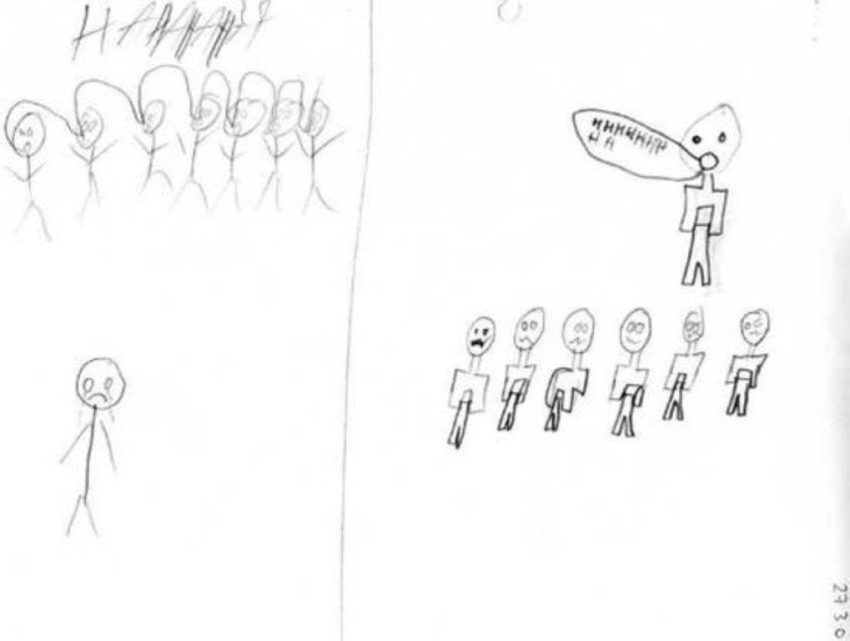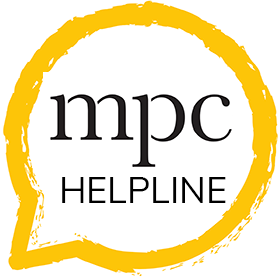
What is stammering?
Stammering is when you
- repeat whole words, e.g. “and-and-and then I left”
- repeat bits of words (sounds or syllables) e.g. “c-c-come h-h-here” or “an-animal”
- prolong or stretch sounds, e.g. “sssssssometimes I go out”
- block – your tongue and lips are in position to say a word but everything feels stuck
- tense up or push with your face or body to get your words out
- do something with your body to try and get the word out, like stamping your feet, shifting position, moving your head, blinking your eyes, or tapping your fingers
- do something with your body to try to hide your stammer, like putting a hand over your mouth or turning away
We call this the outward, or overt, part of stammering because it’s the stuff that other people might see or hear. It’s a bit like the top of an iceberg – the bit that you can see.
But a part of stammering is what is hidden or inside – like the part of an iceberg that is hidden under the water. This includes the thoughts and feelings that you might have because of stammering and things you might do to cope that only you know about.
Thoughts about stammering
These can include:
- worrying about what people might think if you stammer (for example, that they will think you are weird or stupid, or that there is something wrong with you)
- worrying about how people will react (for example, that they won’t listen to you, that they’ll walk away, that they will laugh at you or talk about you behind your back) – maybe because this has happened to you in the past
- thinking that you’re not good at talking because you have a stammer or that you can’t do things because you stammer
- going over and over it in your mind and giving yourself a hard time about stammering
Feelings about stammering
These can include:
- feeling anxious, nervous, embarrassed, ashamed, frustrated, sad, guilty, angry or helpless. These feelings might just happen sometimes and not really bother you or they could happen a lot, be quite big or even overwhelming and really get in the way for you.

(Drawing by Marcus, age 14)
Doing things to hide stammering

This can include:
- deciding to stay quiet or to not put your hand up (even though you know the answer), not joining in group discussions, or saying that you don’t want to read aloud in front of the class
- using a different word because it feels safer, even though it isn’t quite what you wanted to say
- saying “it doesn’t matter” or saying as little as you can
These are some of the things that kids who stammer tell us goes on for them – not all the time, but in some situations. It is all a normal part of stammering but it might not feel that great or be helping.
Everyone is different
Lots of kids who stammer talk about these kinds of thoughts, feelings and ways of coping. But not everyone. Some children who stammer don’t worry about it or even think about it that much. They feel confident and stammering doesn’t stop them from talking or joining in. Sometimes it is parents who are more worried!
Is it just me?
About 5% of children stammer so you are not on your own. Listen to Peter talking about his stammer.
My Stammering Tap: Hear in Hull – A City of Culture Creative Communities Project. This project is a collaboration between Speech and Language Therapy at Humber NHS Trust, Artlink Hull, the general public and people who stammer. “Hear the message not the stammer.”
Can I get help?
If you already have a speech and language therapist therapist then make sure you’ve said that you want some help. They can either help you themselves or refer you to the Michael Palin Centre. If you don’t have a speech and language therapist tell a parent, teacher or your GP. Any of them can refer you to the Centre if that’s what you would like.
Your therapist will need information about our assessment clinic and how to refer you to the MPC.
Have a look at what other children have said about coming to the MPC.

Sometimes you just need someone to talk to


Sometimes you just need someone to talk to
Our Helpline, 020 3316 8100, is open during office hours (9am-5pm) and voicemail messages can be left when the office is closed.
“This course is a really great starting step for someone who has very little experience with children who stammer. The content and resources have been super useful.” (July 2019).
Become a Friend
Receive emails with news and information about the Centre's work, events, and fundraising.
Sign up